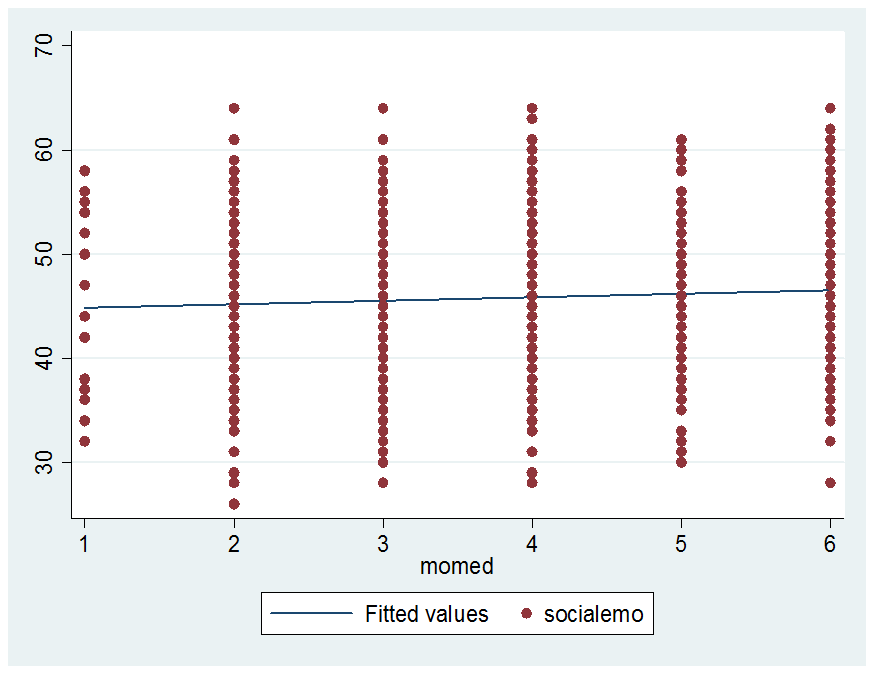Lines can tell a lot about the relationship between different things. The most interesting lines tend to be steep and diagonal, suggesting a direct and strong relationship. Like the line between family wealth and education. The richer the family, the better its children do in school.
Or U-shaped lines that map happiness. After an all-time high in our youth, happiness declines as we age, enter the work force and start having families. Happiness bottoms out in our late 30s and early 50s, and rises again around the age of 60, when we either gain wisdom or simply accept the lives we live.
Generally, the least interesting lines are flat. Flat means no relationship whatsoever.
Apply this to another example: child development. When measured against socioeconomic status (SES), a measure that goes beyond money to include levels of education and endowments in the home, the line becomes steep and diagonal. SES directly affects how much a child learns and what her life-long possibilities are. Rich kids not only start life off better than poor kids, this advantage tends to increase as kids move from school to the workforce.
There are some important aspects of growing up and later becoming a productive and happy adult that may have less to do with how rich families are and more to do with how parents, teachers and other adults interact with kids and how kids interact with each other.
Look at maternal education (highly correlated with SES, and therefore a proxy for it) and a child’s socio-emotional development:
Maternal education and socio-emotional development  Source: Regional Project on Child Development Indicators, PRIDI. Preliminary data.
Source: Regional Project on Child Development Indicators, PRIDI. Preliminary data.
The line is flat! SES does not appear to impact all-things-important to a child´s development equally. Some skills, like self-restraint, persistence and self-awareness – socio-emotional skills – can be developed independently of the material resources or wealth of the family, school or community. Intentional and quality interaction matters, like playing, including kids in conversation and daily activities, and teaching them empathy and respect. And these skills are important for school and life. Maybe even more important than intelligence.



This certainly underscores the importance of life skills that are being increasingly included in youth training programs. Thanks for an interesting and thought-provoking blog!